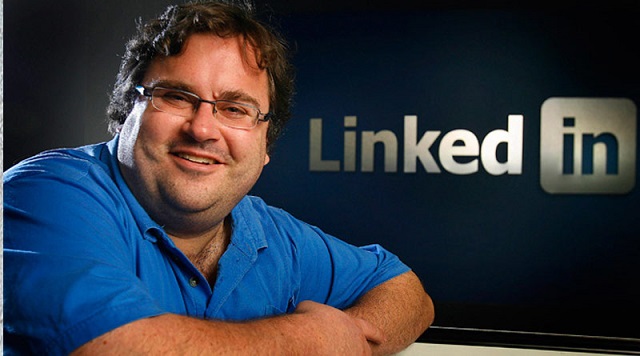
San Francisco, United States | AFP |
Silicon Valley, the hub of the US tech industry, is traditionally a Democratic political stronghold.
But that has perhaps never more been more true than in this election year, with a presidential contest featuring a Republican nominee seen here as more interested in returning to the past than building the future.
It is no understatement to say Donald Trump is unpopular among California’s tech titans.
Along with overwhelmingly donating their dollars to Democratic presidential candidate Hillary Clinton, many are openly campaigning for Trump’s defeat.
Apple co-founder Steve Wozniak, Twitter co-founder Ev Williams and Wikipedia founder Jimmy Wales were among more than 100 people who recently signed an open letter from the tech industry taking a stand against the real estate tycoon.
“We have listened to Donald Trump over the past year and we have concluded: Trump would be a disaster for innovation,” the letter read.
“His vision stands against the open exchange of ideas, free movement of people, and productive engagement with the outside world that is critical to our economy.”
Trump has railed against immigrants, proposed “shutting down” part of the internet as a security move, criticized Apple for making its products abroad and accused online retail giant Amazon of “getting away with murder, tax-wise.”
Geoffrey Skelley at the University of Virginia’s Center for Politics said the tech sector is also fearful that Trump could start a trade war that would hurt firms with global ambitions.
Instead of focusing on the future and technology, Trump appears to his detractors to be bent on resurrecting manufacturing jobs from a bygone era.
“Trump is pretty anathema to the things that Silicon Valley wants,” said Melinda Jackson, an associate professor of political science at San Jose State University.
“He seems to be backward-looking — to make things like they were before,” Jackson told AFP. “And Silicon Valley is about new innovation and the next big thing.”
Deep Clinton roots
While Google has laid out a mission of making the world’s information freely available and Facebook is striving to connect everyone on the planet, Trump has branded the media an enemy and vowed to build a wall along the border with Mexico to keep people out.
Facebook’s Mark Zuckerberg shot down the idea of a Mexico wall at a developers conference in San Francisco earlier this year.
Careful not to make a direct link to Trump’s rhetoric, Zuckerberg nonetheless urged those tailoring software for the social network to “choose hope over fear” and to help people build bridges instead of walls.
Another Facebook co-founder, Dustin Moskovitz, and his wife committed $20 million to Democratic causes and backed Clinton in the first-ever political endorsement of a candidate by the power couple.
“It is clear that if Secretary Clinton wins the election, America will advance much further toward the world we hope to see,” Moskovitz and his wife said in an online post.
“Donald Trump wins, the country will fall backward, and become more isolated from the global community,” they said.
Fundraising events for Clinton in Silicon Valley have included one hosted by Apple chief executive Tim Cook — reportedly once touted as a possible Clinton vice presidential pick — and another by the widow of Apple co-founder Steve Jobs.
“The Clintons, and Hillary’s roots in particular, go deep here,” Jackson said. “She is a known quantity. They trust her for the most part and feel they would at least know what to expect.”
Mirror opposite
Apple skipped providing funding or support for the Republican national presidential convention this year citing Trump’s comments about immigrants, minorities and women.
“Trump represents the mirror opposite of everything they believe (in Silicon Valley); welcoming immigrants, a cosmopolitan global world order,” said Gregory Ferenstein, author of “The Age of Optimists,” about how technology transforms lives and politics.
LinkedIn co-founder Reid Hoffman has been an outspoken Trump opponent, promising to donate $5 million to veterans’ charities if the Republican candidate releases his tax returns, which he has so far refused to do.
Trump has also been engaged in a nasty feud with Amazon founder Jeff Bezos, accusing him of using The Washington Post, which Bezos bought for $250 million three years ago, as a weapon against him.
“He’s using that as a tool for political power against me and against other people, and I’ll tell you what, we can’t let him get away with it,” Trump told Sean Hannity of Fox News.
Trump went on to say that Bezos is “using The Washington Post for power so that the politicians in Washington don’t tax Amazon like they should be taxed.”
Trump’s backers
Trump is not completely without support in Silicon Valley.
High-profile PayPal founder-turned-venture-capitalist Peter Thiel, an early investor in Facebook, delivered a keynote speech at the Republican convention and has donated significant sums to Trump’s campaign.
That prompted former Reddit chief Ellen Pao to sever ties between Project Include, which is devoted to promoting diversity in the tech industry, and Y Combinator, a startup incubator Thiel is involved with.
“We are completely outraged to read about Thiel donating $1.25 million to Trump,” Pao wrote in an online post. “While all of us believe in the ideas of free speech and open platforms, we draw a line here.
“Giving more power to someone whose ascension and behavior strike fear into so many people is unacceptable,” she said.
 The Independent Uganda: You get the Truth we Pay the Price
The Independent Uganda: You get the Truth we Pay the Price





